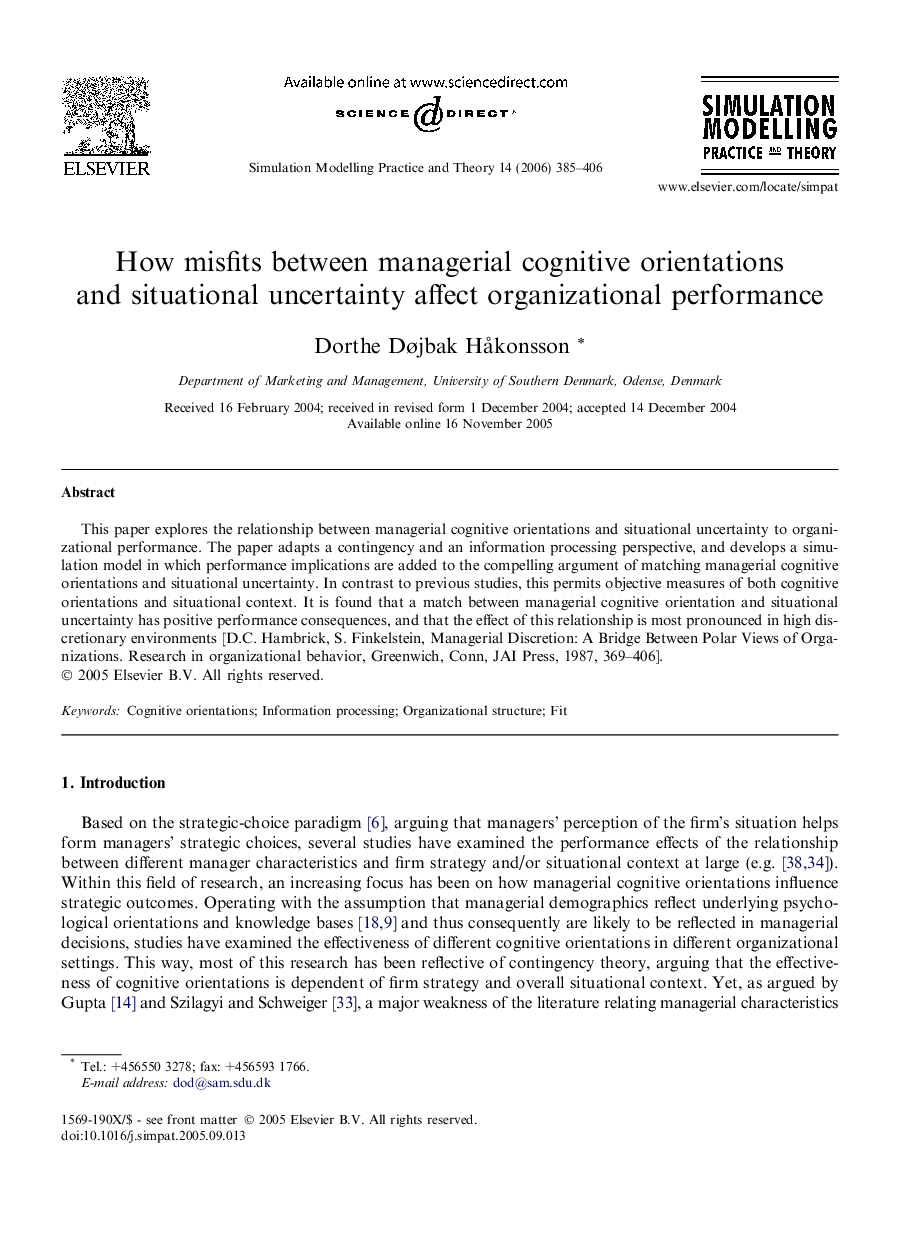| Article ID | Journal | Published Year | Pages | File Type |
|---|---|---|---|---|
| 493815 | Simulation Modelling Practice and Theory | 2006 | 22 Pages |
This paper explores the relationship between managerial cognitive orientations and situational uncertainty to organizational performance. The paper adapts a contingency and an information processing perspective, and develops a simulation model in which performance implications are added to the compelling argument of matching managerial cognitive orientations and situational uncertainty. In contrast to previous studies, this permits objective measures of both cognitive orientations and situational context. It is found that a match between managerial cognitive orientation and situational uncertainty has positive performance consequences, and that the effect of this relationship is most pronounced in high discretionary environments [D.C. Hambrick, S. Finkelstein, Managerial Discretion: A Bridge Between Polar Views of Organizations. Research in organizational behavior, Greenwich, Conn, JAI Press, 1987, 369–406].
